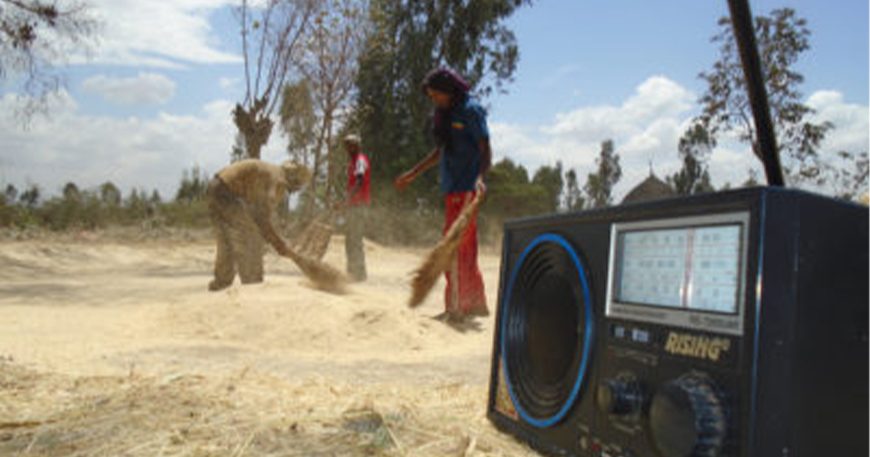Radio is a great communication tool for African farmers. It reaches most of them. It can provide important and timely information in their own languages. And radio, (often coupled with mobile phones), can give farmers a powerful voice in development.
But radio is not always effective. In fact, farmer programs often fall far short.
– The voices of farmers are rarely heard.
– “Experts,” on the other hand, are featured and respected, whether they are helpful or not.
– Program hosts are disdainful of farmers, whom they see as much lower creatures than themselves.
– Important issues are ignored or avoided because they are complex, or sensitive, or require additional resources.
– Broadcasters are given no training, and are expected to produce effective programs with little or no guidance or support.
– And much farm broadcasting is very boring to listen to!
Too frequently, a radio station thinks that a farmer program is a slot in the schedule into which they can simply “dump” agricultural information, and hope that farmers will listen and use it. But a radio program is a distinct communications tool, with its own strengths and weaknesses, like a novel, or a comic strip, or a song. An effective farm radio program follows standards that exploit the strengths of radio.
As a farm broadcaster, you want your farmer program to be useful, interesting – even empowering, for farmers. And you want it to have a wide audience of both women and men farmers. To help you, we have pulled together “best practices” of farm broadcasters, and have grouped them in a way that will be easy for you to remember and use.
We call them the VOICE standards for effective farmer radio programming. There are five standards, and in English their key words spell out “VOICE.”
V – The program values small-scale farmers, both women and men. It respects farmers for their hard work producing nutritious food for their families and the markets, often in the face of major challenges. It reaches out to farmers to understand their situation, and is dedicated to supporting them in their farming work and in their efforts to improve rural life.
O – The program provides farmers with the opportunity to speak and be heard on all matters. It encourages small-scale farmers to name their concerns, discuss them, and organize to act on them. It holds to account those with a duty to hear farmers and serve their needs.
I – The program provides farmers with the information they need, when they need it. Farmers require specific information and they need it in time to act on it.
C – The program is consistent and convenient. It is broadcast at least weekly, at a time when women and men farmers can listen.
E – The program is entertaining and memorable. It appeals to the interests and tastes of a wide range of local farmers. Complicated material is presented in a way that helps farmers remember.



